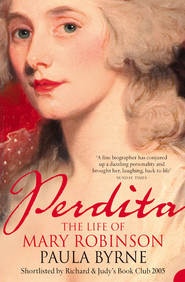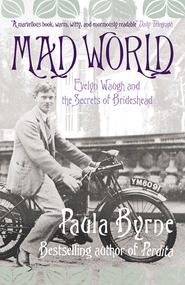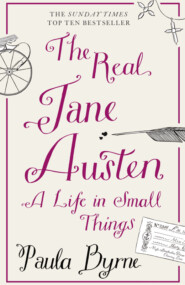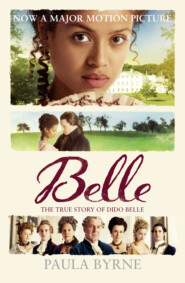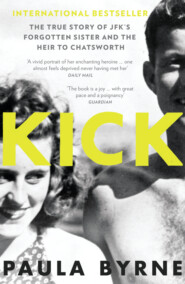По всем вопросам обращайтесь на: info@litportal.ru
(©) 2003-2024.
✖
The Genius of Jane Austen: Her Love of Theatre and Why She Is a Hit in Hollywood
Настройки чтения
Размер шрифта
Высота строк
Поля
The correspondent goes on to complain of the journal’s lack of sentimental interest and offers recommendations to improve its style:
Let the lover be killed in a duel, or lost at sea, or you make him shoot himself, just as you please; and as for his mistress, she will of course go mad; or if you will, you may kill the lady, and let the lover run mad; only remember, whatever you do, that your hero and heroine must possess a great deal of feeling, and have very pretty names.51 (#litres_trial_promo)
The letter ends by stating that if the author’s wishes are not complied with ‘may your work be condemned to the pastry-cooke’s shop, and may you always continue a bachelor, and be plagued with a maiden sister to keep house for you’. It is signed Sophia Sentiment.
It is highly probable that Jane Austen wrote this burlesque letter to her brother. It is very close in spirit to her juvenilia of the same period. Love and Freindship also has a sentimental heroine named Sophia. It seems plausible that The Mausoleum was among the comedies considered for performance by the Austens when they were looking at material for home theatricals in 1788. This may have been the time that Jane first became acquainted with the name Sophia Sentiment. If Austen was indeed Sophia Sentiment, by her own admission, she was a great reader of some hundred volumes of novels and plays.
Austen also owned a copy of Arnaud Berquin’s L’ami des enfans (1782–83) and the companion series L’ami de l’adolescence (1784–85). Berquin’s little stories, dialogues and dramas were much used in English schools for young ladies towards the end of the eighteenth century, being read in the original for the language or in translation for the moral. Berquin states in his preface to L’ami des enfans that his ‘little dramas’ are designed to bring children of the opposite sex together ‘in order to produce that union and intimacy which we are so pleased to see subsist between brothers and sisters’.52 (#litres_trial_promo) The whole of the family is encouraged to partake in the plays to promote family values:
Each volume of this work will contain little dramas, in which children are the principal characters, in order that they may learn to acquire a free unembarrassed countenance, a gracefulness of attitude and deportment, and an easy manner of delivering themselves before company. Besides, the performance of these dramas will be a domestic recreation and amusement.
Berquin’s short plays and dramatic dialogues were intended to instruct parents and children on manners and morals, on how to conduct themselves in domestic life, how to behave to one another, to the servants, and to the poor, and how to cope with everyday problems in the home. Some were directed towards young women, warning against finery and vanity. Fashionable Education, as its name suggests, depicts a young woman (Leonora) who has been given a fashionable town education, ‘those charming sciences called drawing, music, dancing’, but has also learned to be selfish, vain and affected.53 (#litres_trial_promo) The blind affection of Leonora’s aunt has compounded her ruin. The moral of this play is that accomplishments should embellish a useful education and knowledge, not act as a substitute for them. A similar play, Vanity Punished, teaches the evils of coquetry, vanity, selfishness and spoilt behaviour.
Intriguingly, one of the playlets in the collection carries the same plot-line as Austen’s Emma. In Cecilia and Marian, a young, wealthy girl befriends a poor labourer’s daughter and ‘tastes the happiness of doing good’ when she feeds her new playmate plum cake and currant jelly:
Cecilia had now tasted the happiness of doing good. She walked a little longer in the garden, thinking how happy she had made Marian, how grateful Marian had shewed herself, and how her little sister would be pleased to taste currant jelly. What will it be, said she, when I give her some ribbands and a necklace! Mama gave me some the other day that were pretty enough; but I am tired of them now. Then I’ll look in my drawers for some old things to give her. We are just of a size, and my slips would fit her charmingly. Oh! how I long to see her well drest.54 (#litres_trial_promo)
Cecilia continues to enjoy her patronage until she is roundly scolded by her mother for her harmful and irresponsible conduct. By indulging and spoiling her favourite, Cecilia has made her friend dissatisfied with her previous life:
MOTHER: But how comes it, then, that you cannot eat dry bread, nor walk barefoot as she does?
CECILIA: The thing is, perhaps, that I am not used to it.
MOTHER: Why, then, if she uses herself, like you, to eat sweet things, and to wear shoes and stockings, and afterwards if the brown bread should go against her, and she should not be able to walk barefoot, do you think that you would have done her any service?55 (#litres_trial_promo)
Cecilia is an enemy to her own happiness and that of her ‘low’ friend Marian. She is only saved by the intervention and guidance of her judicious mother. In L’ami des enfans, mothers are often shown instructing, advising and educating their daughters: the plays were aimed at parents as well as children. In Emma, the variant on Berquin’s plot-line is a similarly meddlesome, though well-meaning, young woman who painfully lacks a mother figure.
Like Berquin, Austen wrote her own short plays and stories for domestic entertainment.56 (#litres_trial_promo) But, rather than teaching morals and manners, Austen’s playlets parody the moral didacticism of Berquin’s thinly disguised conduct books. There are three attempts at playwriting in Austen’s juvenilia. The first two, ‘The Visit’ and ‘The Mystery’ in Volume the First, were written between 1787 and 1790.57 (#litres_trial_promo) The third, ‘The First Act of a Comedy’, is one of the ‘Scraps’ in Volume the Second and dates from around 1793.
As mentioned earlier, ‘The Visit’ was probably written in 1789, the same time as the Steventon performance of Townley’s High Life Below Stairs. The play depicts a dinner engagement at Lord Fitzgerald’s house with a party of young people. Dining room etiquette is satirised in this piece, as the characters pompously make formal introductions to one another, then promptly discover that there are not sufficient chairs for them all to be seated:
MISS FITZGERALD: Bless me! there ought to be 8 Chairs & there are but 6. However, if your Ladyship will but take Sir Arthur in your Lap, & Sophy my Brother in hers, I beleive we shall do pretty well.
SOPHY: I beg you will make no apologies. Your Brother is very light. (MW, p. 52)
The conversation between the guests is almost wholly preoccupied with the main fare of ‘fried Cowheel and Onion’, ‘Tripe’ and ‘Liver and Crow.’ The vulgarity of the food on offer is contrasted with the polite formality of the guests:
CLOE: I shall trouble Mr Stanley for a Little of the fried Cowheel & Onion.
STANLEY: Oh Madam, there is a secret pleasure in helping so amiable a Lady –.
LADY HAMPTON: I assure you my Lord, Sir Arthur never touches wine; but Sophy will toss off a bumper I am sure to oblige your Lordship. (MW, p. 53)
Banal remarks about food and wine lead irrationally to unexpected marriage proposals for the three young women at the table, who eagerly accept without a second’s hesitation.
On the surface, Austen’s parody of a dull social visit derives its comic impact from the farcical touches and the juxtapositions of polite formalities with vulgar expressions. The young heroine, Sophy, like so many of Austen’s early creations, is portrayed as a drunk who can ‘toss off a bumper’ at will. Above all, there is an irrepressible delight in the sheer absurdity of table manners. The Austens performing this play would, of course, be expected to maintain their composure when solemnly requesting ‘fried Cowheel & Onion’ and ‘Liver & Crow’ (MW, p. 53).
Austen’s playlet, deriding the absurdity and pomposity of table etiquette, provides a mocking contrast to the morally earnest tone of Berquin’s instructive playlets. His Little Fiddler also dramatises a social visit, where the exceptionally rude behaviour of a young man to his sister (Sophia) and to her visitors, the Misses Richmonds, leads to expulsion from the family circle. Charles, the ill-mannered brother and deceitful, greedy son, is eventually turned out of his father’s house for his treachery and lies, and for his cruel treatment of a poor fiddler. In Berquin’s play, the virtues of polite conduct are piously upheld:
SOPHIA: Ah! how do you do, my dear friends! [They salute each other, and curtsy to Godfrey, who bows to them.]
CHARLOTTE: It seems an age since I saw you last.
AMELIA: Indeed it is a long time.
SOPHIA: I believe it is more than three weeks. [Godfrey draws out the table, and gives them chairs.]
CHARLOTTE: Do not give yourself so much trouble, Master Godfrey.
GODFREY: Indeed, I think it no trouble.
SOPHIA: Oh, I am very sure Godfrey does it with pleasure, [gives him her hand.] I wish my brother had a little of his complaisance.
The stilted artificiality of such social visits is precisely the target of Jane Austen’s satire in ‘The Visit’. She seemed to have little time for plays which dictated appropriate formal conduct, preferring comedies which satirised social behaviour. Jane Austen mocks Berquin and simultaneously begins to explore the incongruities and absurdities of restrictive social mores.58 (#litres_trial_promo)
As noted, a more direct source for ‘The Visit’ was Townley’s High Life Below Stairs. Austen’s quotation ‘The more free, the more welcome’ (MW, p. 50) nods to Townley’s farce, where fashionably bad table manners are cultivated by the servants in an attempt to ape their masters. Berquin wrote didactic plays instructing the correct ways to treat servants, both honest and dishonest. Townley’s hilarious farce of social disruption dramatises a lord who disguises himself as a servant to spy on his lazy servants, so that he can punish them appropriately for taking over his house.59 (#litres_trial_promo)
Austen dedicated ‘The Visit’ to her brother James. Intriguingly, in her dedication, she recalled two other Steventon plays. These ‘celebrated comedies’ were probably written by James, since Jane describes her own ‘drama’ as ‘inferior’ to his:
Sir, The Following Drama, which I humbly recommend to your Protection & Patronage, tho’ inferior to those celebrated comedies called ‘The School for Jealousy’ & ‘The travelled Man’, will I hope afford some amusement to so respectable a Curate as yourself; which was the end in veiw [sic] when it was first composed by your Humble Servant the Author. (MW, p. 49)
James had recently returned from his travels abroad, so ‘the travelled Man’ may have been based on his adventures. The two play-titles echo the form of several favourites in the eighteenth-century dramatic repertoire: Goldsmith’s The Good-Natur’d Man (1768), Arthur Murphy’s The School For Guardians (1769), and Richard Cumberland’s The Choleric Man (1774), Sheridan’s The School for Scandal (1777), and Hannah Cowley’s School for Elegance (1780).
‘The Mystery’ was probably performed as an afterpiece to the Steventon 1788 ‘Private Theatrical Exhibition’.60 (#litres_trial_promo) Austen dedicated it to her father, and it may well have been a mocking tribute to one of his favourite plays. It has been suggested that the whispering scenes in this playlet were based on a similar scene in Sheridan’s The Critic.61 (#litres_trial_promo) Jane Austen’s parody is, however, closer to Buckingham’s burlesque, The Rehearsal, which Sheridan was self-consciously reworking in The Critic.62 (#litres_trial_promo) It is most likely that Austen was parodying the whispering scene in The Rehearsal, where Bayes insists that his play is entirely new: ‘Now, Sir, because I’ll do nothing here that ever was done before, instead of beginning with a Scene that discovers something of the Plot I begin this play with a whisper’:
PHYSICIAN: But yet some rumours great are stirring; and if Lorenzo should prove false (which none but the great Gods can tell) you then perhaps would find that – [Whispers.]
BAYES: Now he whispers.
USHER: Alone, do you say?
PHYSICIAN: No; attended with the noble – [Whispers.]
BAYES: Again.
USHER: Who, he in gray?
PHYSICIAN: Yes; and at the head of – [Whispers.]
BAYES: Pray, mark.
USHER: Then, Sir, most certain, ’twill in time appear. These are the reasons that have mov’d him to’t; First, he – [Whispers.]
BAYES: Now the other whispers.
USHER: Secondly, they – [Whispers.]
BAYES: At it still.






